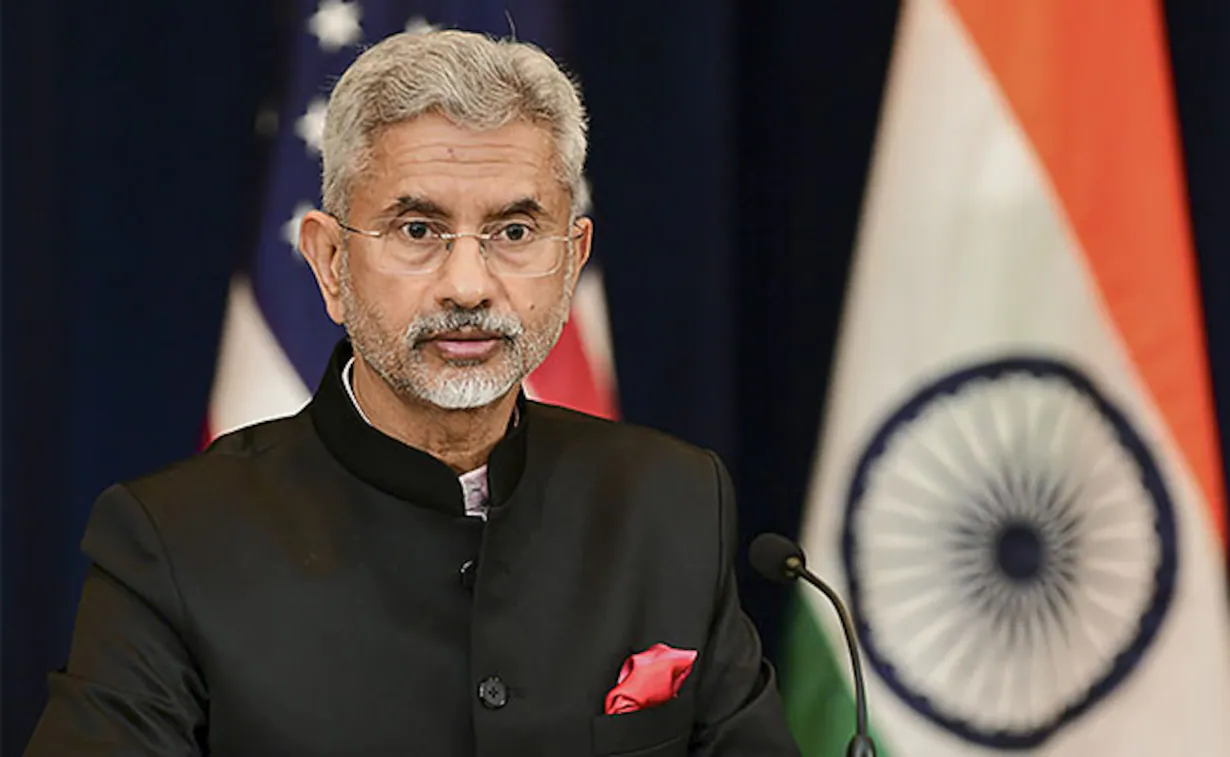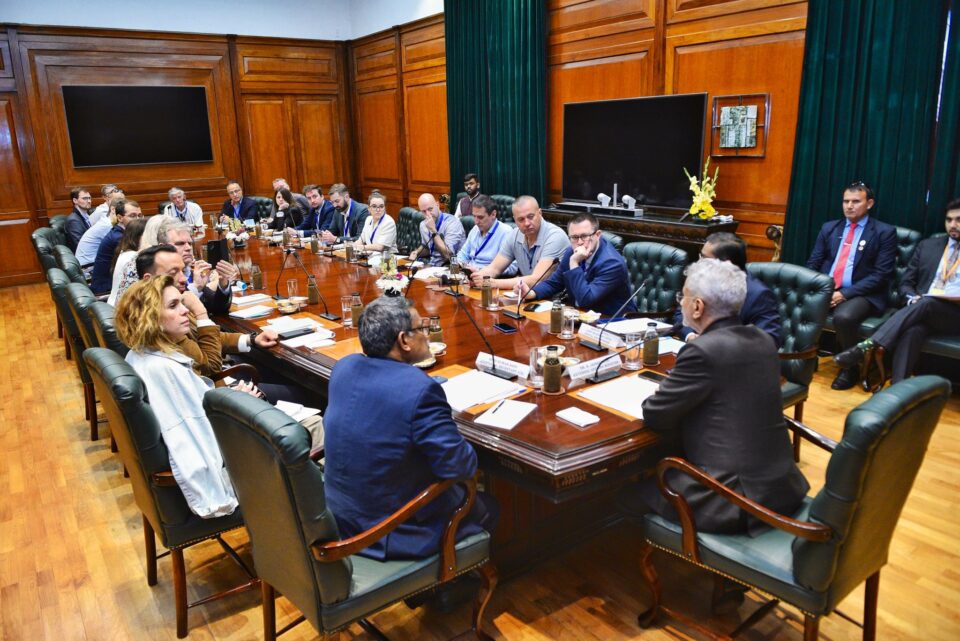The idea of our foreign policy is to be a “Friend of the World”, which, unfortunately, is not always possible
 “We believe that war is not the solution to any conflict and that this war will not be resolved on the battlefield but that there will have to be a negotiation. We respect the positions of Ukraine and the EU, but we also expect others to understand that India’s position is different!”
“We believe that war is not the solution to any conflict and that this war will not be resolved on the battlefield but that there will have to be a negotiation. We respect the positions of Ukraine and the EU, but we also expect others to understand that India’s position is different!”
As soon as he entered the room, Subrahmanyam Jaishankar (69), the Minister of Foreign Affairs of the world’s most populous country, gave the impression of a serious diplomat and politician. He is a member of the ruling BJP party and has held this position since 2019.
He previously served as the Foreign Secretary from January 2015 to January 2018. Jaishankar became the second-ever diplomat to be appointed India’s Minister of Foreign Affairs, after Natwar Singh. He joined the Indian Foreign Service (IFS) in 1977. During his diplomatic career spanning over 38 years, he served in different capacities in India and abroad, including as High Commissioner to Singapore (2007–2009) and as Ambassador to the Czech Republic (2001–2004), China (2009–2013) and the US (2014–2015). Jaishankar played a key role in negotiating the Indo-US civilian nuclear agreement. On retirement, Jaishankar joined Tata Sons as the President of Global Corporate Affairs. In 2019, he was awarded the Padma Shri, India’s fourth highest civilian honour. On May 30, 2019, he was sworn in as the Cabinet Minister in the second Modi ministry. He was appointed the Minister of Foreign Affairs on May 31, 2019. He is the first former Foreign Secretary to head the Ministry of Foreign Affairs as the Cabinet Minister.
He patiently and very skillfully answered numerous questions from colleagues from Eastern Europe, which were mainly about Russia and the fact that India has not imposed sanctions on this country. “To begin with – we believe that war is not the solution to any conflict and that this war will not be resolved on the battlefield, but that there will have to be a negotiation. We respect the positions of Ukraine and the EU, but we also expect others to understand that India’s position is different. Since 1955, India and Russia (then USSR) have had good relations. We want to maintain good relations with Russia and we do not want China to be its only big friend in Asia. Of course, this does not mean that we agree with Russia on everything, but we are trying, just like the other side, to invest in our relations!”, the minister said.
We believe that war is not the solution to any conflict
He also referred to the recent case of “trafficking” of people from India who ended up as Russian soldiers on the battlefield in Ukraine: “Some of them didn’t know at all that they were going to Russia, while some others knew but thought they were going to do some other work! These cases are something that we are seriously investigating and that must not be repeated!”
The minister was somewhat less “gentle” towards China, with which India has a disputed border in numerous places where, during the pandemic of 2020, a conflict broke out in which 20 Indian soldiers died while the number of victims on the other side was never reported: “With neighbouring countries, two matters are important – their strength and their behaviour. If the behaviour is problematic and the strength is small, it’s not a problem. But since the strength of this country is great and the behaviour is often problematic – it is something you will definitely pay attention to!”
India wants to be a “Friend of the World” and it conducts such diplomacy, but this is not always possible, especially with some of its neighbours. Minister Subrahmanyam Jaishankar also spoke about the upcoming general elections that will be held this spring. “Currently, 940 million people have the right to vote, and the average turnout is 70%!”. Due to such high number of voters and the turnout, the elections will last as long as 4-5 weeks.
He also referred to the 2023 report on the state of media freedom in the world published by Reporters Without Borders: “On that list, Afghanistan (152) is ahead of India (161). I have nothing else to add. Those who prepared the report either had not visited Afghanistan or they had not visited India…”
Familiarisation Visit of Editors and Journalists from Central European Countries
From March 13 to 20, 22 journalists and editors from the countries of Central and Eastern Europe were on a visit in India – from Finland, Estonia, Latvia and Lithuania in the north, through Poland, the Czech Republic and Slovakia, to Romania, Serbia, Croatia, Slovenia, Albania and Cyprus in the south. The visit was organised by the Ministry of Foreign Affairs and during this time the guests had the opportunity to visit Agra and Hyderabad in addition to New Delhi.
